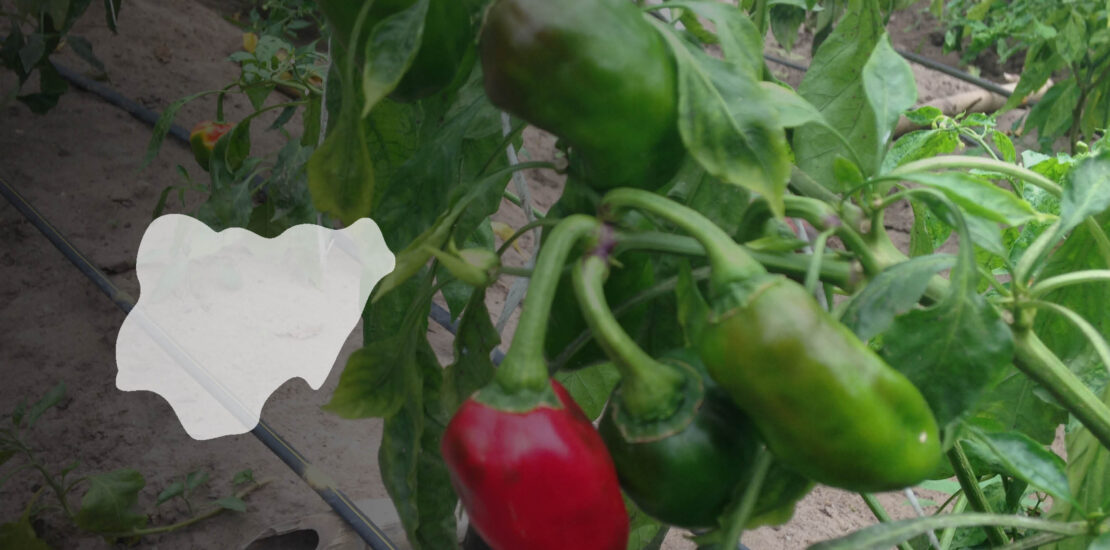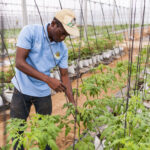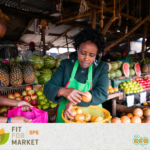Impacts of Covid-19 on the horticultural sector in Nigeria
- 18/09/2020
- Posted by: Sandra Borma
- Category: News, Nigeria

In June, COLEACP conducted surveys to learn from our members and partners in the horticultural sector about the impacts of the current health and economic crisis throughout March–May.
Key points:
- The majority of respondents (64%) saw orders for March–May reduced by more than 25%, with 35% seeing a reduction of over 50% of orders; about a fifth of companies saw a positive increase in sales.
- Almost half of respondents received higher prices for their produce in comparison with 2019; only a small minority indicated that prices had fallen.
- Only one company had applied for a Covid loan issued under the guidance of the National Bank of Nigeria, and only 15% of the requested amount was granted.
The survey was shared with COLEACP partners and members of the Agricultural Fresh Produce Growers & Exporters Association of Nigeria (AFGEAN). The majority of the 16 companies that responded are operating on the domestic fresh produce market, and the main crops affected are chillies, bell peppers, leafy vegetables, lettuce, cucumber and carrots, followed by tomatoes and herbs.
All respondents reported that domestic markets have been impacted by coronavirus, largely due to disturbances to logistics. Closing of markets, hygiene measures and social distancing on the Nigerian open markets have impacted sales of fresh produce. The majority of respondents described medium to high impact on market demand, from both prospective customers (40% of respondents) and existing supply contracts (33%).
Some companies have observed changes in consumer behaviour and are responding to demand for home delivery of fresh produce. Half of the respondents have access to an online platform to sell their products, mainly through social media platforms (WhatsApp, Facebook, Instagram) and an occasional online shop or website.
The majority of respondents (64%) reported reduced orders for March–May of more than 25%, with 35% seeing a reduction of over 50% of orders. About a fifth of companies saw a positive increase in sales. Notably, almost half of respondents received higher prices for their produce in comparison with the same period in 2019. Only a small minority indicated that prices had fallen.
In terms of cashflow, companies face challenges in covering overheads (66.7%), inputs for new production cycles (47%), and fulfilling commitments to financial institutions (26.7%). Only three respondents had benefited from a moratorium on the repayment of loans or delayed payments of taxes. One company mentioned a temporary suspension of lease costs and better payment terms from its buyers.
43% of respondents were not employing any casual workers specifically due to the crisis. One third of respondents said there had been no impact on casual workers.
Four companies had laid off a total of 23 permanent staff, a reduction of 10% on the total number of permanent employees in January 2020. Although most respondents are still maintaining employment of staff (53%), other measures taken to reduce overheads include reducing wages (33%), putting a stop on recruitment (20%), or encouraging staff to take unpaid leave.
Companies that are working with outgrowers are not able to guarantee a market for their small-scale suppliers (43% of respondents), or to pay outgrowers for their fresh produce (29%). Five companies are scaling down on new planting schedules.
The majority of respondents (87%) have taken preventive measures to limit spread of the virus by distributing protective equipment (face masks, hand sanitisers, etc). Over half of the companies have had to change their daily operations, and 40% have set up virtual systems for remote or home working. WHO measures have been implemented at packing and production levels (57% of respondents).
Only one company had applied for a Covid loan issued under the guidance of the National Bank of Nigeria, and only 15% of the requested amount was granted. Respondents mention that funding is still a major bottleneck for many companies’ operations due to increased costs of logistics, safety measures, protective clothing, etc.
Types of support companies would like to receive include negotiation skills to get more out of partnerships (69%); Covid-19-related procedures for farming and production operations (69%); cashflow management (61%); contingency planning (54%); Covid-19-related procedures for packhouse operations (54%); and HR management in times of economic slowdown (46%). Additional topics suggested include risk management; financing and processing skills; post-Covid market support; regular updates/information on health-related issues; advocacy and pressure groups for improved logistics of fresh produce export at the ports; assistance in getting passes to move products around; market access for bulk purchases by processors or institutions.





